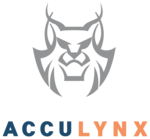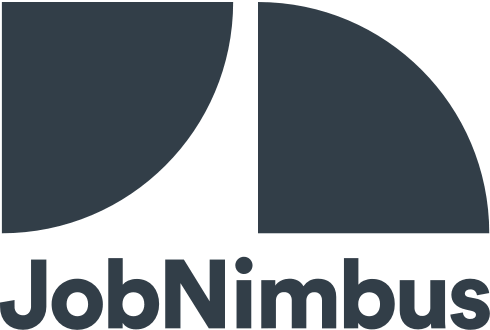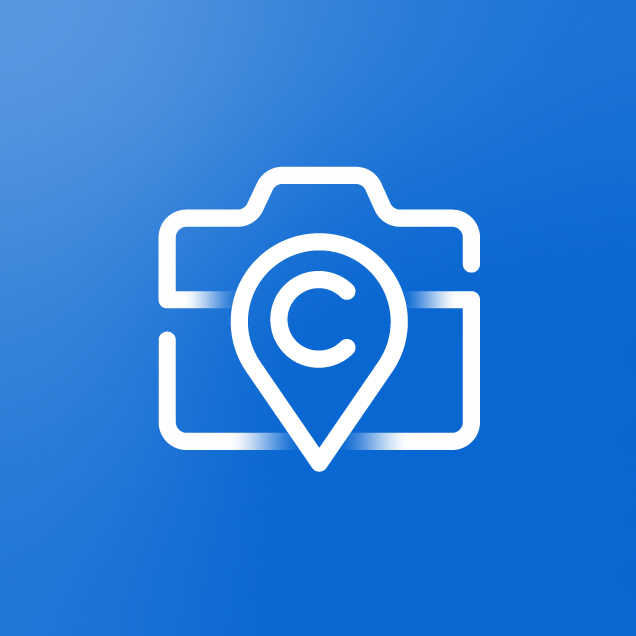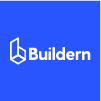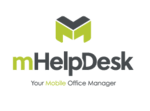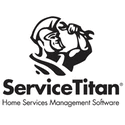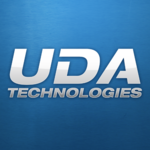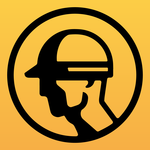What Is Roofing Software?
Roofing software is a specialized technology application developed exclusively for the roofing sector. It attempts to expedite and improve different roofing company processes, including project management, estimation, scheduling, billing, and customer contact. Roofing software helps roofing contractors manage their daily operations more efficiently and improves overall business performance by harnessing digital capabilities and automation.
One of the most important characteristics of roofing software is its ability to provide precise and accurate estimates for roofing jobs. With advanced measurement tools and real-time material pricing, contractors can prepare quotes more quickly and precisely, giving them a competitive advantage in winning bids. Some roofing software also includes customized templates and material databases to make the estimation process more efficient and accurate.
Managing several roofing projects can be difficult, but roofing software makes the process easier by including project management capabilities. This includes the ability to schedule and manage tasks, as well as track progress and interact with teammates and customers. This helps contractors remain on top of their tasks and complete them on schedule.
Roofing software also has invoicing and billing functions, which allow contractors to prepare and send professional-looking invoices to customers. It eliminates the need for manual billing, which reduces errors and saves time. Some software also incorporates accounting and payment processing, making it easier to manage money and collect payments from customers.
Furthermore, roofing software has customer relationship management (CRM) features, which enable contractors to keep track of customer information, communication history, and project data. This contributes to offering exceptional customer service and developing long-term connections with clients. With the advancement of mobile technology, most roofing software now includes mobile apps, allowing contractors to access essential information and manage jobs while on the road. This flexibility and accessibility enable contractors to keep connected to their business even while they are away from the office.
What Are The Recent Trends In Roofing Software?
Roofing software has evolved dramatically in recent years, driven by technological breakthroughs and industry shifts. As more roofing companies recognize the benefits of using software to streamline their processes and improve productivity, the need for new roofing software solutions grows.
Let's explore, we'll look at recent advancements in roofing software and how they might help your business.
1. Cloud-Based Software: One of the most significant trends in roofing software is the transition to cloud-based solutions. This means that the software is hosted on remote servers and may be accessed via the Internet. Contractors may now access their data and tools from any location and on any device, making it easier to run their business while on the go. Cloud-based roofing software also includes data backup, real-time upgrades, and easy collaboration with team members.
2. Mobile Applications: With the growing popularity of smartphones and tablets, roofing software vendors are also offering mobile applications that allow contractors to access and manage their businesses from their mobile devices. This enables contractors to remain connected to their business while on the job site, making it easier to interact with team members, generate estimates, and track projects.
3. Integrated Solutions: Many roofing software companies now provide integrated solutions, which combine many roofing tools and functionalities into a single platform. This enables contractors to have all of their company management tools in one location, eliminating the need for different software applications and streamlining operations.
4. Artificial Intelligence: Artificial intelligence (AI) is a fast-growing technology in a variety of industries, including roofing software. AI can now evaluate data, automate procedures, and forecast outcomes, allowing roofing contractors to make better informed judgments. For example, AI-powered software may assess weather trends and assist contractors in planning their projects accordingly, lowering the chance of weather-related delays.
5. Communication And Teamwork Features: Effective communication and teamwork are critical components of a successful roofing project. Many roofing software packages now include tools like instant chat, notifications, and task assignment to help team members communicate and collaborate more effectively.
Overall, current roofing software trends emphasize efficiency, portability, and the utilization of novel technology to assist contractors in better managing their businesses. When looking for a roofing software solution, it is critical to evaluate these trends and select a program that best meets your company's objectives. We hope this tutorial has provided useful information on recent advances in roofing software and how they might assist your roofing business.
Benefits Of Using Roofing Software
Roofing software is an invaluable resource for contractors and enterprises in the roofing industry. It streamlines and simplifies many of the day-to-day procedures associated with managing roofing projects, from initial estimates and proposals to final invoicing and reporting.
Here are some of the main advantages of using roofing software:
1. Increased Efficiency And Productivity: Roofing software allows you to effortlessly manage all parts of a project in one place, eliminating the need for different systems or paper-based processes. This saves time and allows contractors to focus on what they do best: roofing. Additionally, features like automatic templates and streamlined workflows contribute to increased efficiency and production.
2. Accurate Estimations: Estimation is an essential component of the roofing process, and errors can result in financial losses. Roofing software uses cutting-edge technology and data to deliver precise material and labor estimates, lowering the possibility of underbidding or overestimating.
3. Professional Proposals And Invoicing: Having a professional and precise proposal can make a big difference in winning contracts. Roofing software enables contractors to swiftly develop customized bids with detailed material, including as photographs and videos, to demonstrate their skills and impress prospective clients. Invoicing is also simplified by automated invoicing options, which reduce the possibility of double billing or billing errors.
4. Simplified Project Management: Managing many projects, timelines, and responsibilities can be difficult. Roofing software provides a comprehensive view of all projects in one place, making it easy to allocate jobs, track progress, and meet deadlines. This leads to more effective project management and can help avoid costly delays or blunders.
5. Real-Time Updates And Insights: Roofing software delivers real-time updates on project progress, helping contractors to stay informed of any changes or issues that may develop. This promotes proactive decision-making and keeps clients informed throughout the process.
6. Accessible From Anywhere: Many roofing software packages include cloud-based solutions, allowing users to access them from any location with an internet connection. This flexibility enables contractors to stay connected to their projects even while they are away from the office, enhancing productivity and responsiveness to client needs.
Important Factors To Consider While Purchasing Roofing Software?
When it comes to acquiring roofing software, there are numerous crucial elements to consider to ensure you make the best investment for your business.
Here are some crucial aspects to consider when picking roofing software:
1. Functionality And Features: The first and most important consideration is the functionality and features provided by the software. It should include all of the tools and modules required for estimating, project management, scheduling, and billing. Check to see if the program connects with the other business systems you use, such as accounting or CRM.
2. Ease Of Use: A decent roofing program should be simple to use, especially for those with little technical expertise. It should have a well-designed UI and user-friendly controls to help your team learn quickly. You can get a demo or trial version to test the software's usability before purchasing.
3. Mobile Compatibility: In today's fast-paced world, having mobile-friendly roofing software is critical. This enables you to use the program on the go and manage your business operations from anywhere. Check to see if the program offers a mobile app or a responsive design that works well on smartphones and tablets.
4. Customization And Scalability: Because your roofing business will grow and evolve over time, it is critical to select software that can keep up. Look for a service that provides customization possibilities and can adapt to your changing needs as your company grows. This will save you the trouble of switching software in the future.
5. Data Security: Because your roofing software will include critical business and client information, it must be kept safe and secure. To safeguard your information from cyber dangers, look for software that includes data encryption, scheduled backups, and secure servers.
6. Customer Support: Regardless of how user-friendly a software is, there may be occasions when you require assistance or have questions. That is why it is critical to select a company that provides dependable and timely customer service. Look for options like live chat, phone support, or email support to guarantee that you can obtain help when you need it.
7. Pricing & Payment Options: The pricing of the program is an important issue to consider. Determine your budget and research pricing from several roofing software vendors. Look for various payment choices, such as monthly or yearly subscriptions, to see what works best for your company.
By considering these crucial elements, you can make an informed selection when selecting roofing software for your company. Finally, the correct software can not only improve your business procedures but also help you stay competitive in the roofing market.
What Are The Key Features To Look For In Roofing Software?
When shopping for roofing software, there are a few crucial aspects to consider to ensure that you receive the most value for your money.
Here are some of the main characteristics you should check for while selecting roofing software:
1. Estimating And Bidding Tools: One of the most significant aspects of roofing software is its ability to effectively estimate and bid on tasks. Look for a tool that allows you to enter material and labor prices, as well as variables such as location and roofing material type.
2. Project Management: Good roofing software should also include project management features that allow you to keep track of assignments, deadlines, and team members. This will help keep your tasks organized and on track.
3. Drawing And Design Capabilities: Many roofing software applications include drawing capabilities that enable you to produce accurate and professional-looking roof layouts. Some may even offer 3D design capabilities, which can be useful for seeing the final product.
4. Simple Communication: Look for software that includes a communication option within the platform. This will allow you to better communicate with your team and clients, as well as share crucial papers and updates.
5. Mobile Accessibility: In today's digital age, it is critical to have access to your roofing software when on the move. Look for a program that includes a mobile app or is designed to run on a tablet or smartphone.
6. Accounting And Invoicing Features: A decent roofing software should include accounting and invoicing tools to assist you manage expenses, invoices, and payments. This will help to streamline your business operations, saving you time and effort.
7. Customization Options: Because each roofing business is unique, you'll need software that can be tailored to your exact requirements. Look for programs that let you add and delete features as needed.
8. User-Friendly Interface: No matter how sophisticated the features, if the program is difficult to use and traverse, it will be ineffective. Look for a program with an easy-to-use and understand interface.
9. Customer Support: When purchasing any product, it is critical to have excellent customer service in case you have any concerns or problems. Look for a company that provides a variety of assistance options, including phone, email, and chat.
With these critical qualities in mind, you can make an informed selection about the best roofing software for your business. Remember to consider your budget, business size, and unique requirements when looking for the ideal fit.
Why Do Businesses Need Roofing Software?
Businesses in the roofing sector confront a variety of obstacles and obligations on a daily basis. To keep ahead of the competition, roofing businesses must be organized and efficient in everything from project management and scheduling to expense tracking and customer communication. This is where roofing software enters the picture. Roofing software is a sophisticated tool built exclusively for roofing companies, offering a comprehensive solution to streamline and automate a variety of processes. It provides a variety of features and functionalities that may be tailored to the individual demands and requirements of a roofing company.
Let's explore, we'll look at why roofing software is a crucial investment for every roofing firm.
1. Efficient Project Management: One of the primary reasons that organizations want roofing software is for effective project management. With the ability to design and assign project tasks, track progress, and establish deadlines, roofing software helps firms stay on schedule and avoid delays. It also provides a centralized platform for managers to oversee all parts of a project, ensuring that team members communicate and collaborate effectively.
2. precise Estimations And Bidding: Roofing software provides sophisticated capabilities for creating precise and detailed project estimates, enabling businesses to present competitive bids to potential clients. It considers a variety of aspects such as supplies, labor costs, and other expenses, resulting in a more accurate estimate and increased possibilities of winning bids.
3. Streamlined Scheduling: Managing calendars and appointments is an important part of any roofing operation. Roofing software has scheduling tools that let firms to schedule and manage appointments, assign jobs to team members, and track any modifications or adjustments. This helps to maximize employee effectiveness while lowering the chance of scheduling conflicts and delays.
4. Invoice And Payment Processing: Roofing software allows firms to easily develop and send professional-looking invoices to clients, including complete cost breakdowns. It also supports online payment processing, making it easier for both the company and the customer. This saves time and effort on invoicing and helps to improve cash flow.
5. Real-Time Data And Reporting: Roofing software offers organizations real-time information on project progress, expense tracking, and other vital parameters. This facilitates making educated judgments and identifying opportunities for development. It also provides configurable reporting features, allowing firms to create reports that are tailored to their specific requirements.
6. Improved Customer Relationship Management: Building strong customer relationships is critical to any business's success. Client databases, communication tools, and customer portals are among the capabilities available in roofing software, allowing firms to manage and engage with clients more effectively. This contributes to offering outstanding customer service and developing long-term partnerships.
How Much Time Is Required To Implement Roofing Software?
The time required to implement roofing software varies based on several aspects, including the size of your firm, the complexity of your business operations, and the software's functionality. On average, it takes 2-3 weeks to fully integrate roofing software and get your team up and running. During this time, you may expect to spend a few hours every day working with the software vendor to customize the software to meet your individual goals and requirements.
This includes establishing customer information, pricing, and developing templates for proposals and contracts. Furthermore, teaching your staff on how to use the program efficiently can take a few days to a week, depending on the size of your team and their familiarity with technology. This training is critical for ensuring a seamless transition and making the most of the program.
It is also worth noting that any unforeseen technical issues or challenges that develop during the process can have an impact on the implementation time. It is best to plan for extra time in case of unexpected delays. Overall, while initial setup and training may take a few weeks, the long-term benefits of employing roofing software far outweigh the time commitment. The work invested adopting roofing software is well worth it in the end, as it leads to simpler operations, enhanced efficiency, and higher customer satisfaction.
What Is The Level Of Customization Available In Roofing Software?
Roofing software is intended to improve and simplify the process of estimating, managing, and tracking roofing jobs. One key factor to consider when selecting roofing software is the level of customization available. Customization enables users to adjust the software to their individual needs and tastes, increasing its efficiency and usability. Most roofing software on the market provides a great amount of customization, ranging from basic to extensive features.
This enables users to personalize their workflows and processes, increasing their effectiveness and efficiency in handling roofing projects. Customization might include aesthetic adjustments like colors and design layout, as well as more utilitarian capabilities like templates, forms, and reports. When it comes to customisation, one important feature to look for is the option to create and preserve custom templates.
This saves customers time because they don't have to enter the same information for each project. Custom forms and reports also allow users to select which fields and data are relevant to their particular project requirements. Another aspect of customisation worth considering is the capacity to interact with other software or apps. Most roofing software integrates with accounting and project management systems to streamline procedures and ensure data accuracy.
This level of customization guarantees that the software integrates well with current systems and workflows, saving time and reducing errors. Furthermore, advanced roofing software frequently includes capabilities for unique workflows and processes. This allows customers to create their own custom procedures based on the nature and complexity of their roofing projects. They can also design bespoke milestones, tasks, and job phases to fit their specific procedures.
Overall, the level of customisation offered by roofing software is a crucial consideration when choosing a purchase. It enables users to design a personalized and efficient system that is tailored to their unique requirements and tastes. Choosing roofing software with a high level of customization helps boost overall efficiency and effectiveness while managing roofing projects.
Which Industries Can Benefit The Most From Roofing Software?
Roofing is an important part of construction and maintenance in many industries, and sophisticated technology has substantially increased the efficiency and accuracy of roofing projects. One such technology is roofing software, which has gained popularity among professionals in recent years. This program is intended to automate the entire roofing process, from early project planning to final invoicing, making it an essential tool for roofing companies. So, what businesses will profit the most from roofing software? In short, any firm or group that works on roofing projects will benefit greatly from this program. Let us go into the details.
1. Construction Industry: When it comes to the use of roofing software, the construction industry is clearly ahead of the curve. Construction organizations can greatly benefit from roofing software's capabilities because they have numerous projects running at the same time and must meet tight schedules. This software allows contractors to precisely estimate supplies, develop detailed project timelines, and track progress in real time. It also helps to manage staff, subcontractors, and equipment, ensuring that everything goes properly.
2. Roofing Companies: Whether they specialize in residential or commercial projects, roofing software can significantly increase operational efficiency. The program enables them to effectively communicate with consumers, generate service quotations, and book appointments. It also helps with inventory management, project cost tracking, and report generation to help make smarter decisions. Roofing software can also be integrated with accounting systems, making billing and invoicing more efficient.
3. Facilities Management: Facilities management businesses manage a wide range of facilities, such as commercial buildings, shopping malls, hospitals, and schools, all of which require frequent roof care. Facilities management organizations can use roofing software to keep track of roof inspections, repair and maintenance schedules, and documentation for compliance and insurance purposes. This program is also useful for budgeting forthcoming roofing projects and managing service contracts with third-party roofing contractors.
4. Insurance Industry: The insurance sector handles a large number of claims for roofing damage, which is often caused by extreme weather conditions. Roofing software can help insurance firms assess roof damage and generate estimates for repair or replacement costs. It also includes image capture and annotation tools, which enable insurance adjusters to rapidly and properly document and explain damage to contractors and homeowners. By automating the claims process, roofing software saves time and avoids errors, resulting in improved customer satisfaction.
Conclusion
Finally, we hope that this buyer's guide for roofing software provided you with useful insights and information to help you make an informed decision. As you weigh the numerous possibilities on the market, keep in mind the essential features and elements to consider that we've highlighted in this article. When selecting roofing software, you should consider your individual objectives and goals, as well as your budget.
It is also critical to conduct extensive study and evaluation on each choice, including reading reviews and asking demos or trials wherever available. JobNimbus, AccuLynx, and iRoofing are some of the best roofing software options available today. These include a variety of services, including project management, estimating, and invoicing, to help streamline your business operations.
Remember that investing in reputable roofing software can significantly increase your productivity, organization, and overall performance in the roofing sector. Keep an eye out for technological updates and developments, since the correct software may benefit your organization for many years. Thank you for reading our buyer's guide, and best wishes in your hunt for the best roofing software!

